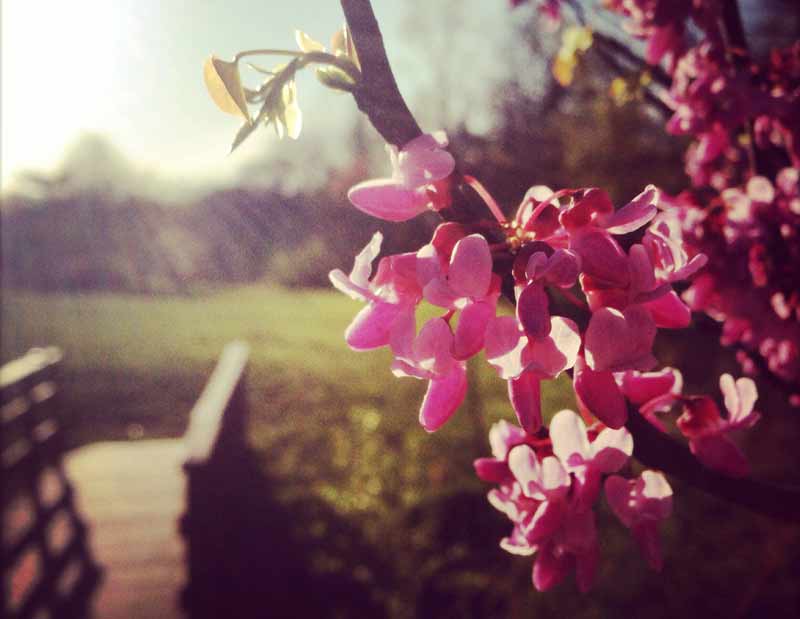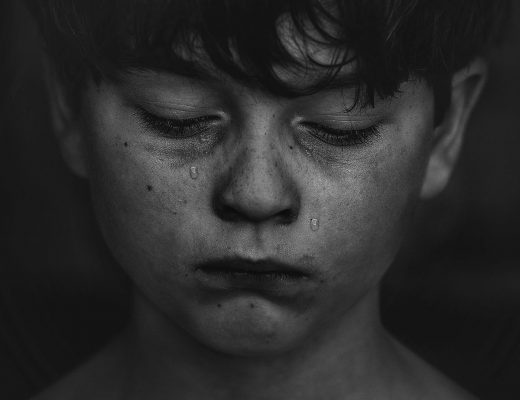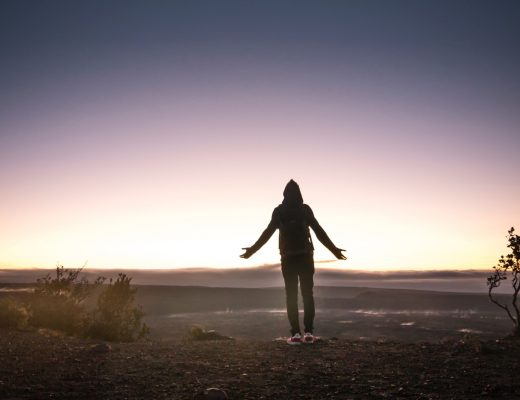When I was a kid my mom used to caution that I was “too smart for my own good.” She was right. We’ll circle back to this in a moment.
Recently I’ve been marveling at – and feeling gratitude for – the many and varied changes that seem to have unfolded within this vehicle called ‘me’ these past many years. The hyper-critic ass who for so long sought to control everyone and everything has largely disappeared.
The man who invested countless years in relationships with the wrong kinds of mates, friends, even family members has at last found peace – and joy – with the perfect mate, a small coterie of friends, and his beloved children. Some have labeled this change of events ‘luck,’ and we’ll get back to that in a moment as well.
Even the great anxieties, insecurities, and fears that for so long seemed to comprise the very fabric of this being seem to have abated. Events that once would have sent me teetering toward the edge are now seen for what they are – mental ephemera in ‘time.’
Which brings me back to the intelligence thing and, to a lesser extent, the luck thing.
The human ego – which is the term used to describe that aggregation of thoughts of oneself – is the greatest of addictions. The richer that ego – which is to say, the deeper, stronger, or more rapid the thoughts – the more intense the addiction. Which helps to explain why so many of the world’s smartest people are also its biggest assholes, its most miserable creatures.
It is interesting to note the great pleasure we take in, say, a dog’s gentle gaze, its simple-minded pursuit of a ball. But we do so precisely because it is so uncomplicated.
What I am trying to say is something that I have wanted to say for a long time but was reluctant to do so because so many might falsely ascribe such thoughts to a particular “religion.” So what better day to finally write the words than on Christianity’s Good Friday (I have a sense of humor, after all).
So here it is: You need help. If you are unhappy, miserable, suffering, get down on your knees and ask for help. From God, the Big Kahuna, the Great Spirit, whatever the hell it is you wish to call That from which you emanated. Better still, don’t call “It” anything – just ask for help. As much as you need. And then some more.
The simple truth is you don’t know shit, despite what that bulb on top of your shoulders tells you. And the more you think you know? Well, the more miserable you’re likely to be.
Yes, guys like Einstein were smart and weren’t miserable. But guys like Einstein were also incredibly humble. In fact, the more that Einstein peeled back layers of this universe, the humbler he became.
But most of the intelligentsia mistakenly imagine it can think its way into and back out of things. It places human thinking on a pedestal, sees a world – a universe – to be conquered. And any difficulties in such endeavors are always the fault of someone or something other than oneself.
See for yourself. The least happy people almost always are busy pointing fingers at everything and everyone around them. They have the answers if only the world would listen. The only answer they don’t seem to have is their own happiness.
And when another finds good fortune in the form of a gentler, happier, humbler life? It is dismissed as ‘luck.’
When I crashed in March 2006, there was nothing left inside but acid and pain and torment and hell. And so it seemed only natural to let gravity do its thing, to pull me to my knees, and from that unfamiliar vantage I at last looked up and begged for help. I surrendered.
While I wish I could tell you everything got better from there, it didn’t. Not even close. But there was the subtlest spark that day, the tiniest glimmer that ‘something’ was listening. And as I continued over those coming months and years to surrender, to pray, to ask for help, to humble myself, to acknowledge, in the words of Joel Goldsmith, that “of my ownself I can do nothing,” change did indeed come.
I also can tell you that when the changes at last became ‘self-evident,’ when the ego took ownership and laid claim to those changes and quietly admired itself for all ‘it’ had done, the suffering recommenced.
Looking back, it was not the vision quests or the ayahuasca or the prayer or meditation or sweat lodges or hocus-pocus that helped to heal so much that was broken. It was the “I” acknowledging that it was in fact the common denominator in all that suffering, that this I needed to step aside, to make room for something else. It was a willingness at long last for ‘me’ to humble myself, to ignore a lifetime’s worth of teaching (for good and ill) and mental posturing, to sit in a park at 3 a.m. and simply ask, “Help.”
On a steamy morning in the Amazon, when even the bizarre ayahuasca ceremony of the preceding night showed no signs of easing my torment, I wandered off and quietly wept. At that point I had spent thousands of dollars, had traveled thousands of miles, had done everything that I thought might help. And, of course, that was the problem. It was just more of what “I thought.”
As I walked a gentle rain began to fall, and for what seemed like the thousandth such occasion over the past few months, I asked the question: “What is wrong with me?” And then, exhausted, came: “Please, help me. I can’t do this by myself. I don’t know what I’m doing here. Or anywhere. Please.”
Today, I recognize that it was in those moments, quietly couched as they were amidst all my mental machinations, that the real growth was taking place.



